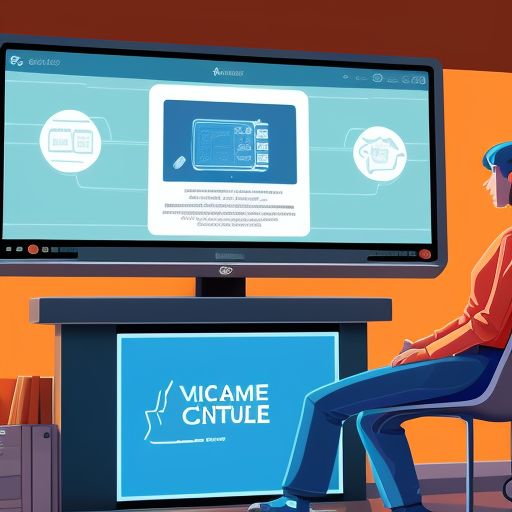Creating and Selling Online Courses A Complete Guide

Why Online Course creation Are Booming
In today’s digital age, online learning has become increasingly popular. More people are turning to the internet to acquire new skills and knowledge. This trend has opened up a world of opportunities for experts and educators to share their expertise through online courses. If you’ve been considering creating and selling your own online course, you’re in the right place. This guide will walk you through the process, from conception to launch.
Identifying Your Course Topic
The first step in online course creation is choosing the right topic. Consider these factors:
- Your expertise and passion
- Market demand
- Potential audience size
- Competition in the niche
Researching Your Market
Before diving into course creation, it’s crucial to understand your target audience. Conduct surveys, join relevant online communities, and analyze competitor offerings to gauge interest and identify gaps in the market.
Planning Your Course Content
Once you’ve settled on a topic, it’s time to outline your course content. Break down your subject into manageable modules and lessons. Remember to:
- Start with the basics and gradually increase complexity
- Include a mix of text, video, and interactive elements
- Provide practical exercises and assignments
- Allow for self-paced learning
Creating Engaging Course Materials
Your course materials should be informative and engaging. Consider using a variety of content types:
- Video lectures
- Written guides and ebooks
- Quizzes and assessments
- Discussion forums
- Live Q&A sessions
Choosing the Right Platform
Selecting the right platform to host and sell your course is crucial. Some popular options include:
- Udemy
- Teachable
- Thinkific
- Your own website
Each platform has its pros and cons, so research thoroughly to find the best fit for your needs and target audience.
Pricing Your Course
Determining the right price for your course can be tricky. Consider factors such as:
- The value you’re providing
- Your target audience’s willingness to pay
- Competitor pricing
- Your own time and resource investment
Don’t be afraid to start with a slightly higher price and offer occasional discounts to attract new students.
Marketing Your Online Course
Creating a great course is only half the battle. To succeed, you need to effectively market your offering. Some strategies to consider:
- Leverage social media platforms
- Start a blog or YouTube channel to showcase your expertise
- Collaborate with influencers in your niche
- Offer a free mini-course or webinar as a lead magnet
- Use email marketing to nurture leads and promote your course
Building a Community
Fostering a sense of community among your students can lead to better engagement and word-of-mouth referrals. Consider creating a private Facebook group or Discord server for your students to interact and support each other.
Continuously Improving Your Course
Once your course is live, the work doesn’t stop. Regularly gather feedback from your students and make improvements to your content and delivery. This will help ensure your course remains relevant and valuable over time.
Remember, creating and selling an online course is a journey. It requires patience, persistence, and a willingness to learn and adapt. But with the right approach and dedication, you can build a successful online course business that not only generates income but also positively impacts the lives of your students.




